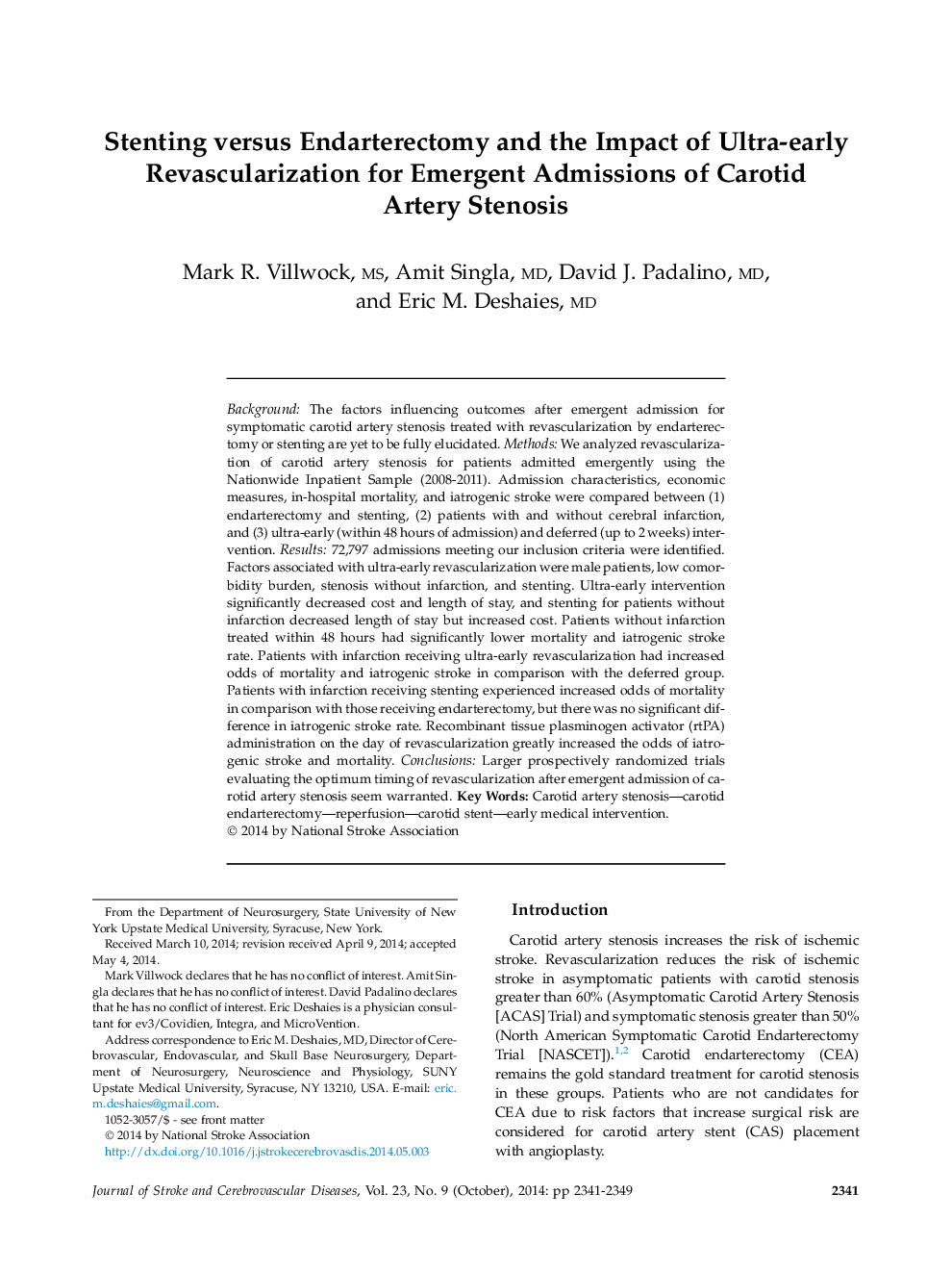| Article ID | Journal | Published Year | Pages | File Type |
|---|---|---|---|---|
| 2702501 | Journal of Stroke and Cerebrovascular Diseases | 2014 | 9 Pages |
BackgroundThe factors influencing outcomes after emergent admission for symptomatic carotid artery stenosis treated with revascularization by endarterectomy or stenting are yet to be fully elucidated.MethodsWe analyzed revascularization of carotid artery stenosis for patients admitted emergently using the Nationwide Inpatient Sample (2008-2011). Admission characteristics, economic measures, in-hospital mortality, and iatrogenic stroke were compared between (1) endarterectomy and stenting, (2) patients with and without cerebral infarction, and (3) ultra-early (within 48 hours of admission) and deferred (up to 2 weeks) intervention.Results72,797 admissions meeting our inclusion criteria were identified. Factors associated with ultra-early revascularization were male patients, low comorbidity burden, stenosis without infarction, and stenting. Ultra-early intervention significantly decreased cost and length of stay, and stenting for patients without infarction decreased length of stay but increased cost. Patients without infarction treated within 48 hours had significantly lower mortality and iatrogenic stroke rate. Patients with infarction receiving ultra-early revascularization had increased odds of mortality and iatrogenic stroke in comparison with the deferred group. Patients with infarction receiving stenting experienced increased odds of mortality in comparison with those receiving endarterectomy, but there was no significant difference in iatrogenic stroke rate. Recombinant tissue plasminogen activator (rtPA) administration on the day of revascularization greatly increased the odds of iatrogenic stroke and mortality.ConclusionsLarger prospectively randomized trials evaluating the optimum timing of revascularization after emergent admission of carotid artery stenosis seem warranted.
